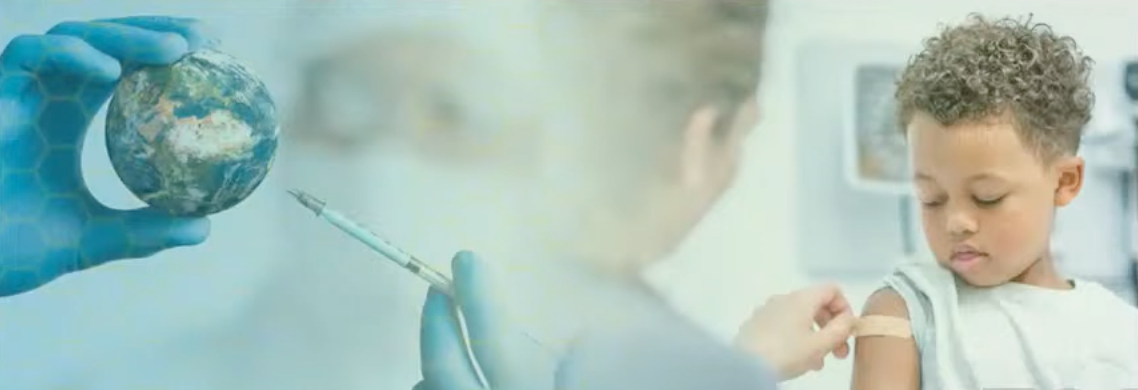With millions of COVID-19 vaccines already distributed, inequity is very evident. In this blog Lynda Keeru reports back from International Pharmaceutical Federation (FIP) hosted webinar, ‘Vaccinations and the genders: Examining inequities in gender access and handling of vaccinations globally to inform pharmacy policy”; part of FIP’s ongoing digital programme, Transforming Vaccination Globally, Regionally and Nationally. Equitable distribution is essential for broadening the vaccine’s reach and curbing the impacts of the pandemic. Gender-related barriers must be addressed in the planning and rollout of vaccine distribution to reach everyone, especially those most marginalized. This webinar provided a platform for very vital conversations to this end.
Women are at the forefront of responding to COVID-19 and account for 70% of the global health workforce. Samiratou Ouedraogo reminded participants that women only occupy 25% of leadership roles in global health and this is even lower in Sub Saharan Africa with a mere 10% in these roles.
Women are not only health system users, but also drivers because they play a critical role in vaccine delivery, particularly, at the community health level. Often, they do this work with little or no compensation. These women need to be engaged in decision making and vaccine campaigns because they are highly skilled at engaging the community. Vaccine inequity must be changed by including the voices of people of all genders and socio-economic backgrounds in conversations around vaccine delivery, accessibility, and hesitancy.
Addressing gender barriers
Erica Rosser explained that a gender responsive pandemic plan is one which takes into consideration the intersectional needs of women, men and gender minorities in planning, data collection, response, and recovery. This includes considering and addressing how women, men and gender minorities experience differential primary short term, and secondary long term social, economic, security and health impacts.
Secondary impacts vary across different countries and contexts. But there are some areas that are common to many epidemics. For example, the rise in Gender Based Violence across different contexts is a key area of concern, with women, girls, and the LGBTQI community most affected by this. Poor mental health outcomes increased at the same time that mental health services were interrupted – and mental health services are an already underfunded sector in many countries. Sexual and reproductive health services are also often adversely affected. The other priority areas that should be considered in a gender-responsive pandemic plan include economic/work related concerns, representation in decision making and education.
Gender responsive pandemic planning and vaccination
Secondary impacts are not only disruptive in the short term, but can come at a high cost especially when they are compounded. For example, reduction in access to reproductive health services, can lead to higher numbers of unplanned pregnancy and adolescent girls not returning to schools. When they are compounded, the ripple effects can have long-term consequences for individuals and communities. Gender is a major component of people’s identity and it impacts health outcomes; including vaccination. In consequence, gender responsive plans need to be applied in vaccinations. Occupation, age, gender norms and behavior, misinformation, and sociopolitical country context are some of the factors that explain gender imbalance in global vaccination. An example of vaccination policies and exclusion is the vaccination passports that at present would exclude certain groups of people, like pregnant women and children who are not yet universally eligible for the vaccine, limiting their return to normal public social and economic activities.
Vaccination policies cannot be gender neutral, they must bring in a gender lens
Erica outlined the benefits of ethical and safe collection and analysis of intersectional disaggregated data to support a gendered response. To improve programming, we must bridge the global gender data gap, identify, and prioritize those most at risk and create targeted vaccination communication. There’s a need to advocate for gender sensitive vaccine research and development and timely and equitable allocation of vaccines particularly in low- and middle-income countries.
Sofia Segura explained how COVID-19 has exacerbated existing inequalities for women and girls across every sphere, from health to the economy, to security and social protection. Globally, there is a need to drive transformative changes for equality and encourage gender equality in order to achieve better health in our societies.
Successful rollout and fair access to COVID-19 vaccination for everyone contributes to equality and more importantly, the management and termination of COVID-19. No one will be safe until we are all safe.
Contributors:
Samiratou Ouedraogo, Women in Global Health
Erica Rosser, Johns Hopkins Bloomberg School of Public Health
Sofia Segura, School of Medicine of the University of Costa Rica






